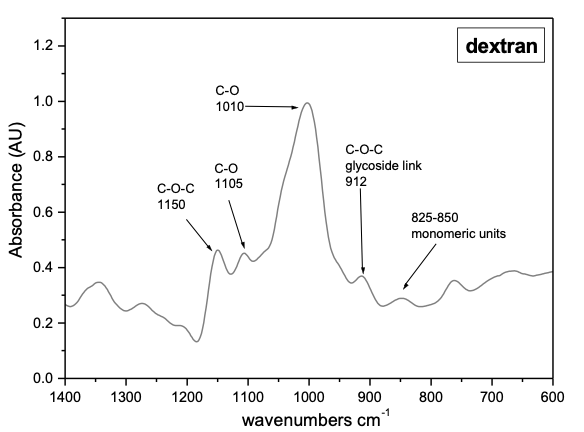 |
|
The sugarcane agri-food industry boosts the Mexican economy in producing regions. Basing its relevance in sugar production yields. However, by-products are not widely exploited leaving an opportunity for diversification. In this study, three microorganism isolates (A, B, and C) were obtained from sugarcane kefir; the morphology of isolates B and C corresponded to the lactic acid bacterial genus Leuconostoc. Thus, we examined the potential for these isolates to produce EPSs, like dextran, a molecule with applications in pharmaceuticals, industrials, and foods. The experiment was performed adjusting the active culture concentration to 1 x 106 colony-forming units (CFU)/ml, the culture was maintained at 37°C in agitation at 150 rpm. The obtained EPSs were purified by ethanol and cold acetone precipitation. The results showed that B and C bacterial isolates had the capacity to produce EPSs (14 g/L for isolate B and 32 g/L for isolate C) after 24 h. Fourier-transform infrared spectroscopy (FT-IR) characterization indicated that the EPS was dextran. Further, the produced biopolymer had high solubility in water, avoided freezing at -4°C, and boiled at 85°C.
Keywords: Biopolymers, Dextransucrase, Dextran, Extracellular Polymeric Substances, Sucrose.
|
|
 |

